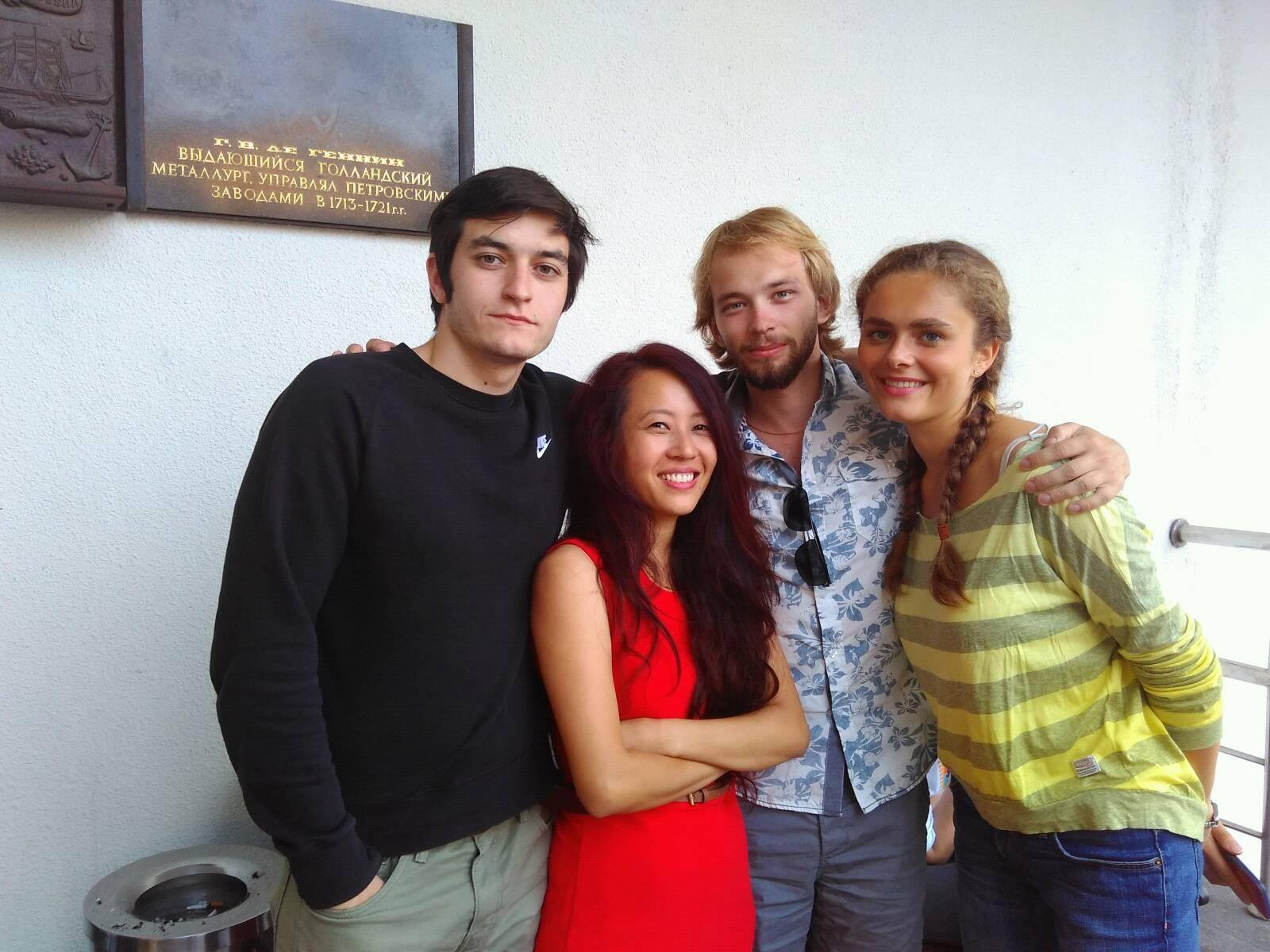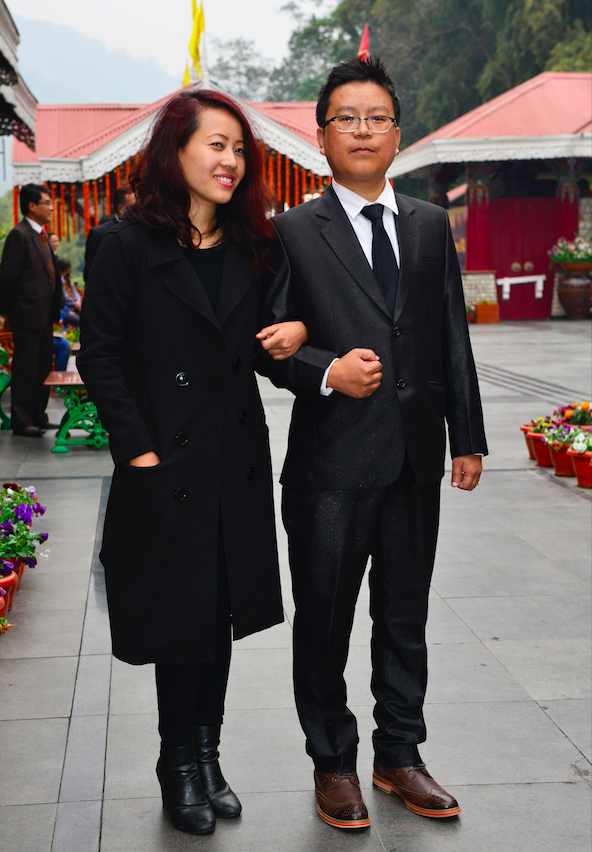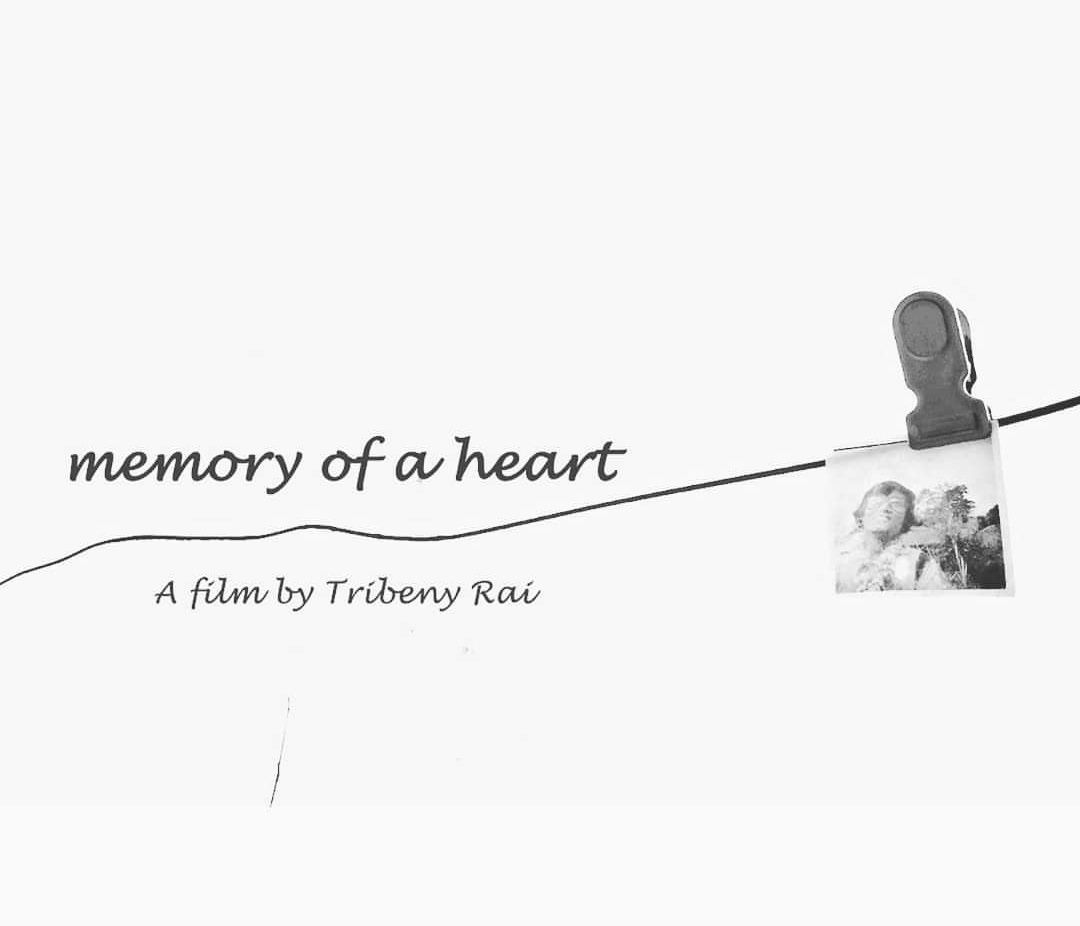“If there’s specific resistance to women making movies, I just choose to ignore that as an obstacle for two reasons: I can’t change my gender, and I refuse to stop making movies” – Katheryn Bigelow.
Growing up in a family of 4 girls, Tribeny Rai faced gender bias at a young age. That experience only gave her the drive and conviction she needed to come out of her shell and do something that was new as well as challenging. That was the start of the journey that strong headed Tribeny set out to embark on for the rest of her life. At 27, she has 8 short films and 1 documentary to her name. Interestingly every one of her works has either won an award or has done the rounds at both national and international film festivals.
Today, we’re happy to feature Tribeny Rai, a passionate independent filmmaker from Sikkim. She is everything you wouldn’t fathom at first glance, but behind her charming smile is a powerhouse of creativity that hits you into real-world subtlety. She chats with R&L about her journey as a filmmaker, her struggles in the industry and more.
-
Hello Tribeny! It’s a pleasure to speak with you. Tell us a bit about yourself, your background and passions.
Hello, I am Tribeny Rai from Nandok, a small village in Sikkim. I am a 27-year-old independent filmmaker. In 2015, I completed my Diploma in film direction and screenplay writing from Satyajit Ray Film and Television Institute, Kolkata. Since then, I have been making short films and documentaries under my production house Dalley Khorsani Productions. Once in a while, I conduct workshops and teach classes on film studies and scriptwriting to students studying mass communication at Sikkim University.
-
What initially sparked your interest in filmmaking?
Growing up I always told my mother that I wanted to be a ‘The Most Powerful Person.’ For me, cinema is one of the most powerful forms of art and has always intrigued me. But, it was not until I joined film school that I started taking a serious interest in filmmaking.
-
How have your roots and where you come from influenced your work?
My parents raised four daughters in a predominantly male-dominated society. At a very tender age, during family gatherings, I had my first-hand experience of gender discrimination. I have seen my mother struggle to send us to an English medium school and my father was mistreated for not having a son. Growing up, this deeply affected me and my outlook towards life but for a very long time, I wasn’t ready to accept or address such gender issues in my films.I have also worked extensively with Prasar Bharati, Doordarshan Kendra Gangtok on a series of documentaries based on women empowerment.
“Today, I am writing roles for women – Beautiful women with soul, will and strength to fight for what we are here for… Not as victims or objects. Somehow, I feel my projection of these roles in a different perspective helps the audience to understand what I want to portray.”
(L-R) Tribeny with her sisters Archana and Rashmi.
-
Your films are very personal… Give us an insight into your filmmaking process.
Cinema is an art form that creates awareness for the world but it has to come from a very pure and honest place for that to happen effectively. I was taught that the most honest form of filmmaking is to make a film for yourself. So when I make a film, I am actually making it for myself, therefore it is very personal. Also, my experiences are best known to me and are specific to me and thus, they become especially personal by default.
Tribeny with India Girls Senior Football team while shooting for her documentary ‘Sikkim Soccer Girls’.

Tribeny with India Girls Senior Football team while shooting for her documentary ‘Sikkim Soccer Girls’
-
What were the main struggles you faced in making a career in filmmaking?
Filmmaking is not considered a career by people especially where I come from (Sikkim). I don’t blame them because we hardly make enough money as independent filmmakers. Whereas, a government job is synonymous with security, insurance and expired thought of pension.
“The same people who congratulate me on my achievements advise me to consider taking up a government job in the future. That old school thought is something I struggle with every day but hopefully, filmmaking will achieve a securable stature in our state very soon and we can finally stop debating over this topic.”
Tribeny getting felicitated on the occasion of 72nd Independence day celebration

Tribeny getting felicitated by Member of Parliament Mr. P.D.Rai, on the occasion of 72nd Independence day celebration
“It would be unfair for me to say that I haven’t had to struggle a little extra for being a woman in this profession. Both conscious and unconscious gender bias is rampant in most industries, but most of us aren’t aware of it. Filmmaking as a profession may discriminate but cinema as an art form doesn’t – One stops being a man or woman all the time, you just become a piece of life with thoughts and experiences.”
Tribeny with her friends and crewmates from Russia.
-
What is your philosophy when it comes to work and creativity?
To be honest I do not have one but I truly believe that God has endowed each one of us with special and unique abilities which means we are all gifted in one way or the other. So, what sets a great achiever apart from another human being is sheer hard work and discipline.
-
Where do you take inspiration from and who is your biggest support system?
I think I am most inspired by the struggle that my parents went through. Unlike other people, I cannot function in a normal or happy state and I automatically gravitate towards sad things. Struggle and grief are my greatest teachers because I feel you can either come out of it broken or come out of it stronger.
My mother is undoubtedly my biggest support system… People who know me personally know that I’m almost obsessed with her. Bijoy Gurung has been one of my best friends and a mentor to me since I interned under him at the daily newspaper Sikkim Express in 2009. My wellbeing and success have always been their priority and I draw my inspiration to create from both of them. I run to them to get my power up whenever I need strength and encouragement. My films are my babies but I could trade it for them.
Tribeny with her mother.
Tribeny with her longtime mentor, Bijoy Gurung.
-
What gets you particularly excited about filmmaking?
The power of creating a world of your own is magical and very addictive. I always lose track of time when I am shooting – It’s a supernatural feeling! The whole theory that your films outlive your life on this Earth is something that is very remarkable and emotional to me. I always try to memorize my emotions while I’m shooting a particular scene because when I later watch the film I feel like those emotions have been engraved in those scenes forever.
-
What do you hope people take away from your movies?
I think my films are about things I know but don’t necessarily understand. So I am not preparing a take away for the audience, I aim to share my story and experience as earnestly as I possibly can. Before making a film I pose a certain question to myself in the hope of finding the answer by the end of the filmmaking process. Will I find the answer? I am not sure. It’s a self-exploratory journey for me and I wish the same for my audience.
-
Do you have a favorite among the films that you’ve made?
“Memory of a Heart” is my personal favorite because I made the film in the memory of my father. It won ‘Best Short Film’ at the Northeast Film Festival in 2016, ‘Audience Choice Award’ at The Women’s Voices Now Film Festival in California and was also screened at 13th IAWRT Asian Women Film Festival.”
Poster of ‘Memory Of A Heart’- a short film by Tribeny (Video link at the bottom)
-
What future projects can we look forward to from you?
My short film ‘Chori’ was initially an extremely personal video documentary where I vent out my emotions about gender discrimination. Though I was skeptical about it, my mother insisted that this story needed to be told and now it’s a 10-minute short film that’s been selected for the 1st Nagaon International Short and Documentary Film Festival. I am both excited and nervous.
I am also currently writing the script for my feature film which has been selected at the Clinik Kathamandu, a South Asian script lab – I’m hoping the film will be ready by 2019.
‘Memory of a heart’ is a short film based on Tribeny Rai’s journal entries which talks about how a daughter relates with her father through her memories of the past.
Follow Tribeny on Instagram to see her film journey and snippets of her daily life!

Photo : Tribeny Rai
- Meet Devika Gurung from Sikkim Who Is Using Her Passion For Arts And Crafts To Empower The Underprivileged Women Of Her Hometown - October 26, 2018
- Drone Photographer Parth Konwar from Assam Wants Us to Get Lost in the Breathtaking Landscapes of North East India - October 12, 2018
- “Makeup Gave Me Wings to Fly – Even After Losing My Sight in One Eye” Meet NYX Face Award Winner Nimshim Jajo from Manipur - October 11, 2018








